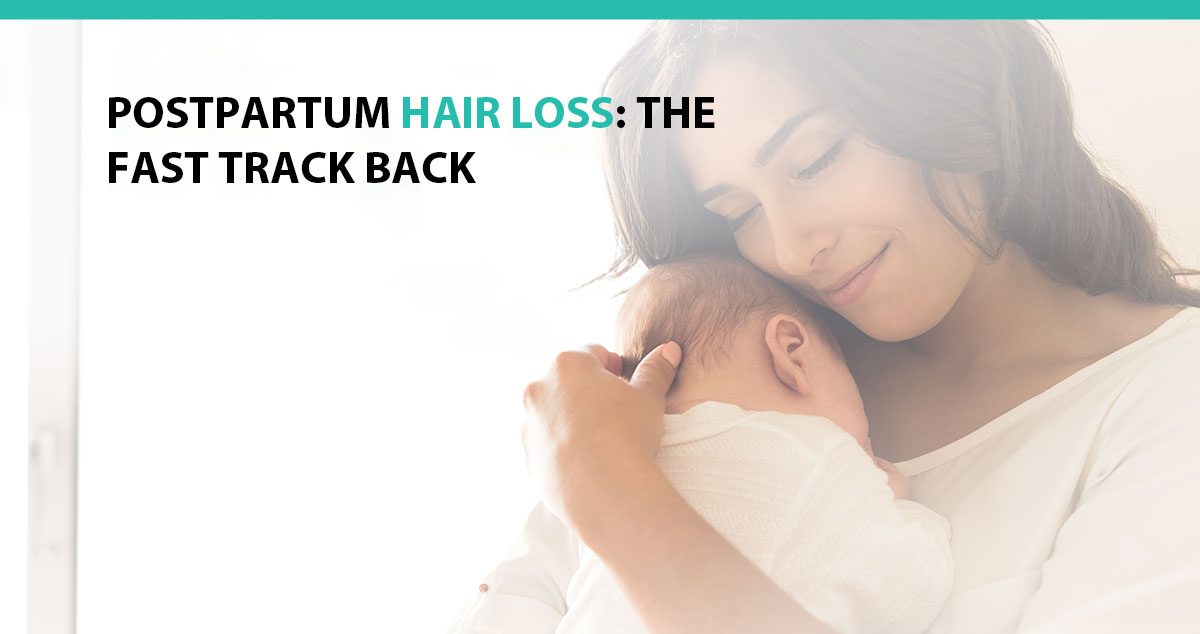
Pregnancy and childbirth can be a beautiful and transformative experience for many women. But along with the joys of motherhood, there can also be some unexpected challenges. One such challenge that many new mothers face is postpartum hair loss, also known as postpartum alopecia. This condition can be distressing, but it is usually temporary and manageable. What are the causes and remedies for postpartum hair loss, and how can we help new mothers navigate this difficulty with confidence?
Cause and Effect
Postpartum hair loss typically occurs in the months following childbirth. It is a natural and temporary condition, but it can be quite alarming for new mothers. Several factors contribute to postpartum hair loss:
- Hormonal Fluctuations
During pregnancy, women experience a surge in hormones, particularly estrogen, which prolongs the hair growth phase. This results in thicker and fuller hair. However, after childbirth, hormonal levels begin lowering until returning to normal. This leads to a rapid shedding of excess hair. This process can be exacerbated if a woman breastfeeds, as breastfeeding hormones can further influence hair loss.
- Telogen Effluvium
Postpartum hair loss is often attributed to a condition called telogen effluvium. This is a temporary disruption in the hair growth cycle, where a larger percentage of hair follicles enter the resting phase (telogen) and eventually fall out. This can be triggered by the physical and emotional stress of childbirth, as well as the hormonal changes.
- Nutritional Deficiencies
Pregnancy places a significant demand on a woman’s body, and the nutrients are prioritized for the developing baby. This can lead to nutritional deficiencies in the mother, which may contribute to hair loss. Common deficiencies include iron, biotin, and zinc.
- Physical and Mental Stress
The physical stress of labor and delivery can also affect hair health. Tugging and pulling during childbirth, as well as the use of anesthesia and medications, can weaken hair follicles temporarily. The loss of sleep while waking up to care for the baby, along with the natural worry that accompanies the baby’s well-being, also begins piling up.
Tips and Tricks
While postpartum hair loss is a normal phase, there are several remedies and strategies to help manage and minimize its effects:
- Maintain a Balanced Diet
Nutrient-rich foods are essential for hair health. Ensure you are consuming a balanced diet rich in proteins, vitamins (particularly B vitamins), and minerals like iron and zinc. Consider taking supplements if recommended by your healthcare provider to address specific deficiencies. That includes asking if you should continue postnatal vitamins to supplement your diet.
- Gentle Hair Care and Hairstyling
Treat your hair gently to minimize further stress on fragile hair. Use a mild, sulfate-free shampoo and conditioner. Avoid excessive brushing as well. Choosing the right hairstyle can help conceal thinning hair. Consider shorter styles that can create the appearance of fuller hair. Avoid pulling your hair too tightly when styling, as this can exacerbate hair loss.
- Scalp Massage
A gentle scalp massage can increase blood circulation to the hair follicles, promoting hair growth. You can use your fingers or a soft brush to massage your scalp for a few minutes each day.
- Postpartum Hair Care Products
There are specialized hair care products formulated to address postpartum hair loss. Look for shampoos, conditioners, and treatments that contain ingredients like biotin, caffeine, and peptides, which can promote hair growth and strengthen hair.
- Hormone Balancing and Postpartum Supplements
While hormone fluctuations are a natural part of postpartum recovery, you can talk to your healthcare provider about options to help regulate your hormones. Tell them about your hair loss concern, and they may suggest birth control methods or other medications if necessary. Some women find that taking postpartum supplements or vitamins specifically designed for hair and nail health can be beneficial.
- Stay Hydrated
Drinking plenty of water is important for overall health and can also benefit your hair. Proper hydration helps maintain the health of hair follicles and can minimize hair loss.
- Patience and Self-Care
Remember that postpartum hair loss is temporary. While it can be frustrating, try to focus on self-care and bonding with your newborn. Reducing stress and getting enough rest can aid in the recovery of your hair and overall well-being.
In a Nutshell
Postpartum hair loss is a common and temporary condition experienced by many new mothers, affecting as many as 65-90% of mothers, per various studies. It is primarily driven by hormonal changes, nutritional factors, and physical stress associated with childbirth. While it can be distressing, understanding the causes and implementing remedies can help manage postpartum hair loss effectively. Remember that with time, patience, and proper care, your hair will likely return to its pre-pregnancy state. Until then, we hope this information helps with a faster recovery.










